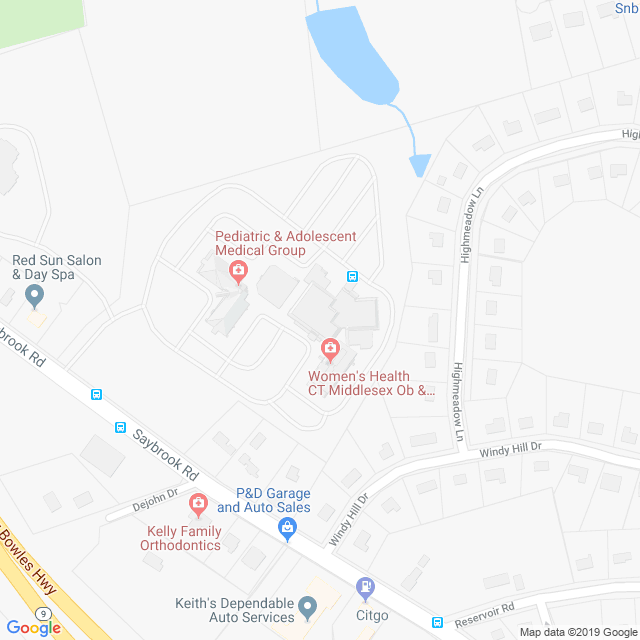
Center for Hernia Repair

Or, if you're not sure what you're looking for, you can:
Browse Specialists
Browse Primary Care
Or, if you're not sure what you're looking for, you can:
Browse All Conditions & Care Services


With more than 500,000 procedures done in the United States each year, hernia repair is one of the most frequently performed surgical operations. Middlesex Health's team of expert surgeons can repair simple and complex hernias using the latest technology and surgical methods, such as laparoscopy or da Vinci® Robot-Assisted Surgery, to minimize pain, reduce recovery time and improve outcomes.
A hernia is a lump or bulge of tissue that protrudes through an opening in the abdominal wall.
The abdominal wall is composed of muscles and connective tissue that help protect our abdominal organs and keep them in place. When someone has a hernia, intestines, fat and other organs push through that opening and occupy the space under the skin.
In rare cases, loops of the intestine can get stuck in a hernia opening. This is considered an emergency and requires urgent surgery.
Inguinal hernia: An inguinal hernia refers to a hernia in the groin — the area where the abdomen and the thighs connect. Inguinal hernias account for about 80 percent of all hernias, and they are much more common in men than women. In fact, men have a 27 percent chance of developing an inguinal hernia within their lifetime.
Femoral hernia: Femoral canals are channels between the abdomen and thighs where blood vessels and nerves pass. Often found in women, the tissue bulges from the lower belly into the upper thigh, just before the groin area. Femoral hernias account for about 4 percent of groin-area hernias.
Ventral hernia: A type of hernia in the front of the abdominal wall. The most common ventral hernias are umbilical hernias, which are associated with a weakness at the umbilicus — more commonly known as the naval or belly button.
Incisional hernia: This is a hernia that occurs at the location of an incision for a previous surgical procedure, caused by pressure on the reunited tissues. It may develop shortly after the surgery or years later.
Epigastric hernia: This type of hernia occurs when fat pushes through a weak part of the belly wall. It occurs in the middle of the belly between the breastbone and the belly button, or navel. Most of the time, these hernias are small, and you can have more than one at a time.
Hiatal hernia: A Hiatal hernia occurs when part of your stomach pushes up through the hiatus, an opening in the diaphragm that separates the abdomen and chest cavity. The condition can lead to heartburn and Gastroesophageal Reflux Disease, and in some cases it leads to serious stomach problems.
Not all hernias cause symptoms and/or require treatment. If you have a hernia in the stomach or groin, you might see a noticeable lump or bulge. You're more likely to notice a bulge while standing up, bending down or coughing — the bulge might disappear when you're lying down.
You might also notice:
Please seek emergency care in the event of any of the following:
Nausea, vomiting or both
A physical exam by a health care provider is often enough to diagnose a hernia. Sometimes hernia swelling is visible when you stand upright, and usually, the hernia can be felt if you place your hand directly over it and press down.
Your doctor may use advanced imaging technology, such as ultrasound or CT scan, to look for certain types of hernias or related complications that need to be treated.
Hernias occur because of weakness in the supporting tissue against which an organ or other tissue exerts pressure. The cause of the weakness may be congenital, it may be developmental, or it may simply be a matter of life activities that wear on our muscle tissue as we get older.
You can minimize your risk of developing a hernia by losing excess weight, exercising regularly, and using good body mechanics when lifting heavy objects.
Hernia repair is essential, since even a small hernia will not cure itself and will grow larger and possibly more serious over time. The expert surgeons at Middlesex Health can perform all types of hernia repair, including open, laparoscopic, and robotic. In general, laparoscopic and robotic surgeries lead to faster recovery compared to open. You and your surgeon will discuss the best approach to treat your hernia.
Hernias do not go away on their own, and only surgery can repair a hernia. Over time, hernias tend to get bigger as the muscle wall gets weaker and more tissue gets through. An incarcerated hernia can quickly become a strangulated hernia. This strangulation of the blood supply leads to necrosis (death) of this piece of bowel and spillage of the bowel contents, leading to sepsis and even death. To avoid these complications, hernias are usually surgically repaired.
Before surgery, make sure to follow any pre-appointment restrictions set by your hernia team, such as avoiding certain medications before surgery and not eating the day of surgery. Try to get a good night’s sleep, and if your procedure requires a hospital stay, make sure to bring anything you will need during that time.
When hernia surgery is straightforward, the surgery is done on an outpatient basis, meaning you go home the same day. Typically, most patients feel okay a few days after the surgery and resume normal activity within one to two weeks.
If your surgery is more complex, you may need inpatient surgery, which means you will stay overnight or several days in the hospital. In this case, your recovery would be a bit longer, anywhere from 3 to 6 weeks
2 Specialty Care Locations


The Middlesex Health Surgical Alliance allows patients to access Connecticut's top surgeons in a setting close to home.